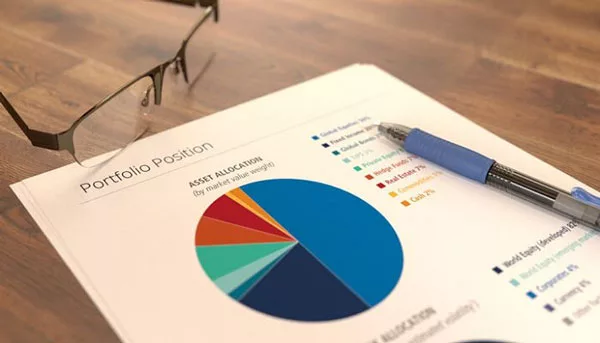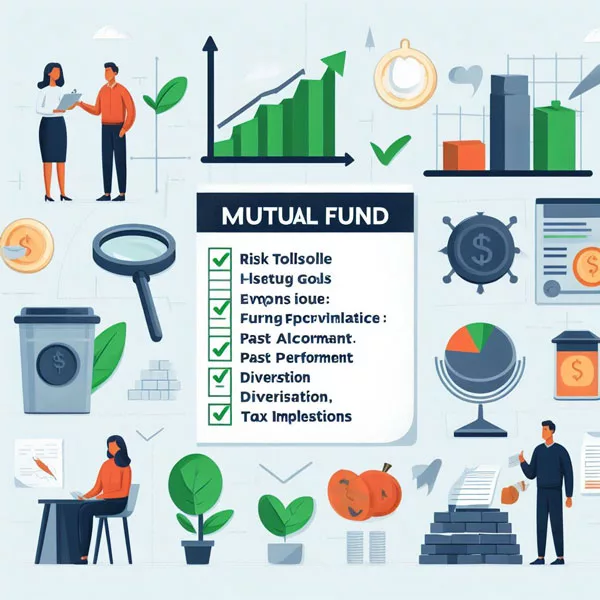ETFs vs. Mutual Funds for Seniors: The Retirement Showdown
Table of Contents
ETFs vs. Mutual Funds for Seniors
Ah, retirement! A time to kick back, relax, and… dive into the thrilling world of investment debates?
Just as seniors might passionately argue about the merits of “Golden Girls” over “MAS*H”, there’s a heated discussion in the financial world: ETFs vs. Mutual Funds.
But fear not! We’re here to break down this showdown and help you make the best choice for your golden years.
Introduction
Remember the days when the biggest decision was choosing between VHS or Betamax? Well, in the investment world, the debate between ETFs and Mutual Funds is somewhat similar, albeit with fewer VCRs involved.
Both are fantastic vehicles to grow your wealth, but understanding their nuances is crucial for a secure retirement.
1. Benefits of ETFs for Retirees
ETFs, or Exchange Traded Funds, are like the cool, modern grandkids of the investment world. Here’s why they’re a hit:
- Flexibility in Trading: Unlike Aunt Martha’s rigid dinner timings, ETFs can be bought and sold throughout the trading day, just like stocks.
- Lower Expense Ratios: Think of this as getting the senior discount every time! With generally lower fees, you keep more of your money.
- Tax Efficiency: Through some financial wizardry (known as the “in-kind” redemption process), ETFs often have fewer taxable events. That means more money for your retirement adventures and less for Uncle Sam.
2. Advantages of Mutual Funds for Seniors
Mutual Funds are the classic, time-tested favorites—like those age-old family recipes. Here’s why they still hold their charm:
- Professional Management: It’s like having a personal chef for your finances. Experts handle the nitty-gritty, ensuring your investments are well-tended.
- Automatic Investment: Set up regular contributions, and voila! It’s the financial equivalent of a slow cooker meal.
- Diversification: With one purchase, you spread your investment across various assets. It’s like having a buffet spread where you sample a bit of everything!
3. Diving Deeper: Tax Efficiency in ETFs
ETFs have a secret sauce that makes them tax-efficient. This “in-kind” redemption process ensures that they rarely sell assets, reducing capital gains. For seniors, this means potentially lower tax bills and more funds for that dream cruise or golf club membership.
4. Mutual Fund Distributions: Blessing or Curse?
While mutual funds often distribute profits, these can come with tax implications. It’s essential to understand these distributions and plan accordingly. After all, who wants a surprise tax bill? Not me, and I bet not you either!
5. Expense Ratios: The Silent Eaters of Your Retirement Fund
Imagine a sneaky mouse nibbling away at your cheese stash. That’s what high expense ratios can do to your investments. On average, ETFs tend to have lower expense ratios than mutual funds, but always check and compare. Every penny counts, especially when it’s going towards spoiling the grandkids!
6. Liquidity and Trading Flexibility: The Financial Dance
While ETFs boogie to the beat of the stock market and offer intra-day trading, mutual funds move to a slower rhythm, trading once a day. Depending on your style, you might prefer the quickstep or a waltz.
7. Portfolio Diversification with ETFs
Diversifying with ETFs is like having an international potluck dinner. From bonds to international stocks, commodities to real estate, there’s an ETF for almost everything. It’s a smorgasbord of investment opportunities!
8. Active vs. Passive Management: The Great Debate
Some like to take the wheel, while others prefer cruise control. Similarly, mutual funds often involve active management, while many ETFs are passively managed, tracking an index. Both have their merits, and the best choice depends on your personal preference and financial goals.
9. Risks Associated with ETFs and Mutual Funds
Every investment comes with risks. Whether it’s market volatility, interest rate changes, or economic downturns, it’s essential to be aware and prepared. Remember, a well-informed investor is a successful one!
10. Best Mutual Funds for Retirement: The Senior Favorites
From growth-focused funds to those prioritizing stability, there’s a mutual fund tailored for every retirement dream. We’ve curated a list of top-performing funds that have consistently delivered results.
11. Best ETFs for Retirement: The Golden Picks
ETFs offer a world of possibilities. Whether you’re looking for sector-specific investments or broad market exposure, there’s an ETF out there for you. Dive into our handpicked selections that promise a blend of performance and security.
Conclusion
The ETF vs. Mutual Fund debate is like choosing between a classic vinyl record and a modern streaming service. Both have their unique charm and benefits.
For seniors, the decision boils down to individual financial goals, risk tolerance, and investment preferences.
A Little Wisdom for the Road
Remember, investing is a marathon, not a sprint. It’s about the long game, ensuring you have a comfortable nest egg to enjoy all the joys of retirement.
Whether you’re sipping margaritas on a beach, taking up a new hobby, or simply spending quality time with loved ones, the right investment choices can make your golden years truly golden.
A Cheeky Side Note
And hey, if all this talk of ETFs, Mutual Funds, and investments has your head spinning, just think of it as choosing between different flavors of ice cream.
Some days you might crave the rich taste of chocolate (a steady mutual fund), and other days you might want to try that new exotic flavor (a shiny new ETF). The key is to enjoy the journey and the returns!
Frequently Asked Questions
What’s the primary difference between an ETF and a Mutual Fund?
ETFs are traded like stocks on an exchange, allowing for buying and selling throughout the trading day at fluctuating prices. Mutual Funds, on the other hand, are purchased at the day’s closing net asset value (NAV) and aren’t traded on an exchange.
Are ETFs generally more tax-efficient than Mutual Funds?
Yes, due to their unique structure, ETFs often have tax advantages over mutual funds. They typically generate fewer capital gains because they can swap out securities in-kind without triggering a taxable event.
Which is more cost-effective: ETFs or Mutual Funds?
ETFs usually have lower expense ratios than mutual funds. However, when trading ETFs, you might incur brokerage commissions, which can add to the cost. Always compare the total costs of both before investing.
Can I invest in both ETFs and Mutual Funds in my retirement account?
Absolutely! Many investors diversify their portfolios by including both ETFs and Mutual Funds. It’s essential to balance based on your risk tolerance and investment goals.
Are Mutual Funds better for regular, automated investments?
Yes, for those who prefer setting up automatic monthly investments, mutual funds might be more suitable because they often allow for automatic investments without additional trading costs.
How do I choose the best ETF or Mutual Fund for retirement?
Consider factors like your risk tolerance, investment goals, the fund’s historical performance, its expense ratio, and the reputation of the managing company. Consulting with a financial advisor can also provide tailored advice.
What are the risks associated with ETFs and Mutual Funds?
Both ETFs and Mutual Funds come with market risks. The value can go up or down based on market conditions. Specific risks can vary based on the assets they hold. Always read the fund’s prospectus to understand its risk profile.
How do dividends work with ETFs and Mutual Funds?
Both ETFs and Mutual Funds can distribute dividends to investors. For ETFs, dividends are typically paid directly to shareholders. Mutual Funds might reinvest dividends or distribute them to investors.
Are there minimum investment requirements for ETFs and Mutual Funds?
ETFs don’t have minimum investment requirements beyond the cost of one share. Mutual Funds, however, often have minimum initial investment requirements, which can vary from one fund to another.
Can I easily convert my Mutual Fund shares to ETFs or vice versa?
Directly converting between the two isn’t standard practice. Typically, you’d need to sell your shares in one and then purchase shares in the other, which could have tax implications.
How do I track the performance of my ETF or Mutual Fund?
Both ETFs and Mutual Funds provide regular performance reports. You can also track their performance through financial news outlets, their respective websites, or investment platforms.
Are there any age-specific considerations for seniors when choosing between ETFs and Mutual Funds?
Seniors closer to or in retirement might prioritize lower-risk, income-generating investments. Depending on individual goals, they might lean towards bond ETFs or mutual funds or those focused on dividend-paying stocks. Always consider your financial situation and consult with an advisor.
How do “Bond Ladders” fit into the ETF vs. Mutual Fund debate for seniors?
Bond ladders involve buying bonds that mature at different times, providing both income and the return of principal over time. Both ETFs and Mutual Funds offer bond-focused options, so seniors can use either (or both) in building a bond ladder strategy.
How do “Bond Ladders” fit into the ETF vs. Mutual Fund debate for seniors?
Bond ladders involve buying bonds that mature at different times, providing both income and the return of principal over time. Both ETFs and Mutual Funds offer bond-focused options, so seniors can use either (or both) in building a bond ladder strategy.
What’s the deal with “Active vs. Passive Management” in this context?
Active management involves a manager making specific investment decisions, aiming to outperform the market. Passive management simply tracks a market index. ETFs are often passively managed, while Mutual Funds can be either active or passive. The choice depends on your investment philosophy and cost considerations.
How do I start investing in ETFs or Mutual Funds?
You can start by opening an account with a brokerage or through a financial advisor. Once your account is set up, you can choose the specific ETFs or Mutual Funds you want to invest in based on your research or recommendations.
Are there any specific ETFs or Mutual Funds you recommend for seniors?
While we can’t provide specific investment advice, it’s crucial to look for funds with a solid track record, low fees, and alignment with your investment goals. Consulting with a financial advisor can provide tailored recommendations.




